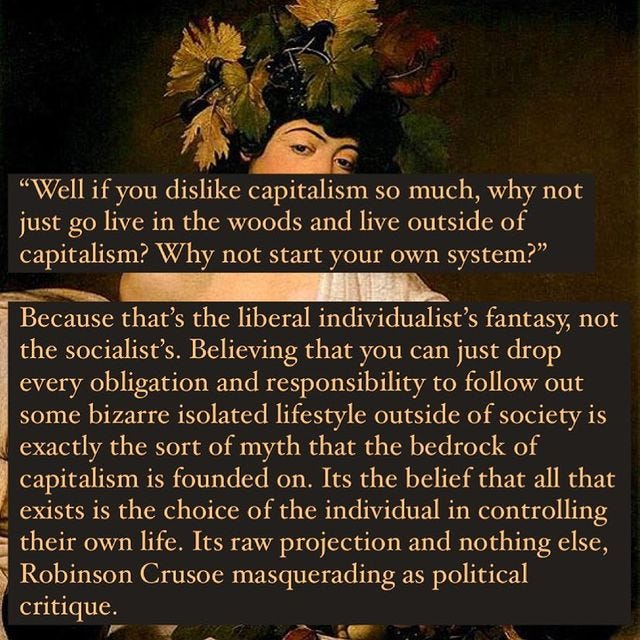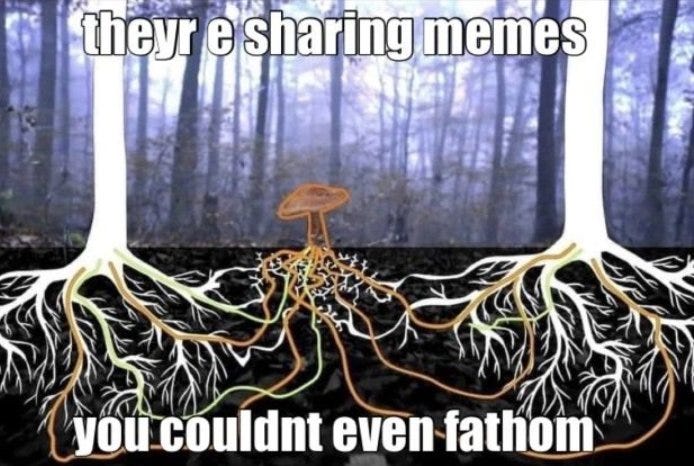English is a limiting language that prevents us from communicating with complexity
Non-binary communication can liberate us + How the lack of vibrancy & expressive range in colonial languages impacts us
I used to have a prominent Indian accent. My body language used to be far more animated & expressive (it’s still considered ‘over the top’ in most formal/ professional spaces or relative to mainstream American culture). I spoke with more sharp inflections & tonal range, used more elaborate & distinct expressions, and I communicated with my whole body & soul. The longer I stayed in the U.S., the more toned down, professional, proper & articulate I became… which sucks. BUT, this whole journey has catalyzed my decolonization without me realizing it.

Until the age of 11, I studied in the Indian education system (even when I lived in different countries in the Middle East/ North Africa region). While that came with its own distinct struggles, my language & demeanor shifted when I started going to schools where the stark socioeconomic gap between me and many of the “cool kids” was glaringly obvious. I had never fathomed or experienced the privilege many of them had. It started when I went to an international middle school in Moscow, Russia and intensified when I went to high school in Dhahran, Saudi Arabia. These years I put a lot of conscious & subconscious effort to rid myself of any signs of colonialism, poverty or trauma.
I practiced putting on an American accent & tried to sound more ‘articulate’. I mirrored mannerisms considered “cool” in American pop culture while dampening anything that made me seem ‘too much’ or ‘too foreign’. I spent more time speaking, reading, writing in English & less time with my native languages. I learned conversational Russian- but it was merely to survive in Russia. I had learned to read/ write in Arabic at a young age & practiced speaking but again out of necessity rather than a deep reverence for the language. English was always considered THE BEST, most important, superior language & I was told I had to master it.
So even “improper” English or ‘slang’ was discouraged— this could be Black or Brown accents from the Global South like mine, dialects affiliated with working class cultures (e.g. Southern “rural” accents were mocked), anything that resembled Blackness (African-American Vernacular English/ Ebonics) etc. Language traditions that had been developed by oppressed groups were considered backward, uncivilized, unprofessional…. savage and I was told that English would allow me to climb the ladder so I could one day hold a place right next to my oppressor.
Note: Throughout this piece, when I refer to “English”, I am mostly referring to mainstream professional, formal English with rules created & shaped by colonizers + the modern global power dynamics & hierarchies that have stemmed from it
Flash forward to today— I feel ashamed that I tried to wash myself clean of my ancestral traditions including our vibrant, expressive, lively, intense, passionate, complex ways of communicating (not just using verbal language or body language but more complex ways of connecting or relating to each other, the land, our ancestors etc). I understand that my own whitewashing, sterilization, sanitization & westernization was an inevitable part of oppression. I also see the journey as non-binary (neither strictly positive or strictly negative) because despite these chains, we have already found ways to express ourselves with creativity & complexity.
1. Why are certain languages spoken more ‘globally than others?
Colonialism. That’s why. The same reason majority of the world uses any hierarchical colonial system like education, prisons, police, the nation state/ government, etc. The same reason art, media, music, literature, medicine, research or any innovation coming from colonial countries or from within colonial frameworks are considered THE BEST & better than those that come from the Global South or from collectivist knowledge traditions. Many of us are forced to rely on English as our primary language while many others rely on other colonial languages like Spanish that carry the same violent implications. These languages were violently spread, enforced & asserted over large regions of the world along with erasure of the diversity of local languages & traditions. Today, to participate in global systems, we’re forced to master colonial languages. There are serious consequences to our reliance on colonial tools- even if we don’t realize it.
As Ananya Ravishankar says in this article (that I’ll quote throughout this piece):
The colonial language carries the colonial view of the world and has the capacity only to perceive it with a certain set of ideologies latched on to its language…
In the case of colonial languages, the kind of racial prejudice is evident in the type of values certain words apparently imply. For example, “white like snow” to indicate innocence” (Sartre 1964, 26). The colour white implies virtue, life, innocence, and purity, while black seems to symbolize death, chaos, evil, and impurity. These value judgements are not exclusive to only words or colours, these translate into the colonial perspectives of the world. Whiteness embodies righteousness and peace, while blackness seems to embody violence, and untamed Animality in need of civilization. Language emphasizes the colonial claim of superiority and righteousness… For those who grow up speaking the colonial tongue exclusively, the language habits and valuations are learned almost in a harmless manner. They are seemingly just words and nothing more, but in the recognition of such distinct values for whiteness and blackness, and in the colonized individual’s recognition of her own blackness, the two cannot avoid one another. Not only do they necessarily cross paths, but they converge in a violent explosion which sets the individual up to hate their blackness, and to aim for whiteness because of what it signifies.
The working class of the world spend their time/ energy/ labor learning & perfecting their English or Spanish or whatever dominant language rather than sustaining, cultivating, practicing & preserving their own customs, cultures & traditions. The Global South is left being dependent on the Global North (specifically the elite in colonial countries from U.S., Canada, Australia, NZ to Europe). Modern day colonialism may be more covert because it posed as progress, globalization & modernity which masks violent erasure & global ethnic cleansing.
How do colonial languages affect the way we think, express ourselves & relate to our environment?
Language is a tool that embodies the traditions, values, ideologies & priorities of the people who developed & shaped it. Dominant contemporary languages like English were developed under colonialism by colonial/ capitalist ELITE which means they allow communication thru a colonial lens that prioritizes domination, control, the self while deprioritizing emotions/ feelings, connection, relationships & the collective. Colonial languages carry a colonial view of the world laced with oppressive ideologies — this shapes our binary, often reductive thinking while also leaving us at a loss for words when we want to express ourselves more deeply, wholly and fully.
Language is a weapon that has been leveraged for colonial dominance. Language determines whose history gets documented, curated, preserved or passed on. When people are deprived of their local language traditions or a diversity of traditions are homogenized & replaced with a few dominant languages— people are deprived of the agency to communicate/ think/ exist freely. Erasure of our languages has taken from us our ability to perceive ourselves or relate to the world with complexity.
Why do we jump to reductive conclusions or make assumptions without explicitly communicating with clarity or depth? Why do we struggle to think outside the good-bad, right-wrong binary & carry nuance or interpret information with more complexity? Why does it feel so INSTINCTUAL to think in absolutes? Capitalism designs our lives in ways that actively prevent us from building community or forging deep, meaningful relationships- language is key to this inhibition which also means communicating in more complex, expansive, creative, collectivist ways can also be the key to our liberation.
“Now, when the colonized subject wishes to speak of herself, or of the condition of her being, there is a fundamental shortcoming because this new language creates a ridge where there is a “patent difference that separates what [s]he says from what [s]he would like to say” (Sartre 1964, 24). In the movement of her feeling, to thought, to its expression through speech, there is a key aspect of meaning fundamentally lost in translation. The incapacity of the colonial language to express the fear and anxieties of the colonized, subdue and mute those feelings to the point where she is now only able to express all that the language allows her to, all that the colonist has the capacity to comprehend. The nuances, complexities and subtleties of emotion and affect which are unique to her have no outlet, no way of being brought out into the world, remaining trapped in the body of the colonized… What is expressed is some form of what is felt, but misses the true embodiment by more than just a sliver.”

Why is there so much academic jargon in English but not enough emotional depth?
There is no lack of complex diction when it comes to academic, political, scientific or medical jargon in English. Innovation is only “valid” if it is done in English. Innovation coming from elite institutions in colonial countries like the U.S. is considered arbitrarily superior to discoveries or research originating from the Global South. The excess of these “intellectual” terms reflects on the colonial desire to dominate & use language to exert superiority. English is THE language of medicine and science. Those living in the Global South or coming from marginalized, rural, working class communities or non-English speakers have countless barriers to access resources not only to survive but to pursue creative solutions to alleviate their communities’ suffering. Colonizers till this day dictate what issues get worked on, how science gets done, what framework of science or medicine is considered “real” and who gets funded or published.
Meanwhile, English doesn’t have an extensive vocabulary of words to describe the complexities of emotion because these nuances facilitate connection NOT domination. Feeling deeply, thinking beyond good/ bad binaries, communicating with clarity & intensity, existing flamboyantly— these are all decolonized ways of being because engaging in these relational behaviors is a pathway to liberation… it is actually a way we can embody liberation TODAY. Colonial languages disregard relationships, ecological connection & collectivism as a whole. I often find myself crawling back to Urdu, Hindi, Kannada and Arabic or even more creative embodied means of expression like art, music & dance because there are so many complex, beautiful emotions or concepts that can be expressed which are simply untranslatable to English or formal verbal/ written communication.
I’ve been somewhat accepted into academic elite institutions as long as I spoke English well & was lost in a self-centered pursuit of success (a pursuit that would uphold capitalism rather than dismantle it and further divide me & my kin). The more I distanced myself from my cultural roots, the more I was accepted into American society. I wasn’t just punished for falling ‘out of line’ by demeaning systems but also in everyday interactions when people would tell me to “tone it down” or make a malicious assumption about my character based on my divergent demeanor. The more I diverged though, the more my culture resiliently re-surfaced through occasional ‘blips’ in my behavior- like my accent ‘slipping thru’ or me ‘accidentally’ getting caught up in the joy or passion of the moment & speaking loudly or interrupting someone. Still, the pressure to be polite, respectable, more white & more capitalist has made me hate, resent & feel repulsed by myself. But f**k this… enough.
“One who recognizes a noticeable gap between what they are able to say and what they experience can either recognize the shortcomings of the colonial language, or project that frustration inwards. This individual might resolve to seeing their uncommunicable anxieties as ‘other’, as misplaced and alien. This is precisely the colonial mindset, that whatever is unheard of and foreign to the white European and his experience of the world, ought to be considered alien, wrong, and in need of fixing. Due to the insufficiency of the colonial language, the colonized subject then proceeds to perceive their cultural experiences and understanding of the world as fatally and legitimately skewed. The language was “codified in favor of those in power” (Flores-Rodriguez 2012, 29) and in active spite of those who were not. The frustration and anxiety further stemming from unexplained and inexpressible inner anxiety only leads to a renunciation of one’s culture. So, with every push down on these feelings which invade, she renounces her blackness in a step toward whiteness (Fanon 1967, 9).”
I think often about why I attached my worth to success— it’s mostly because I was applauded for gaining proximity to my colonizer and so I chased this validation to survive. Authority figures pat me on the back for excelling academically in colonial systems on stolen land— I was told this made me a GOOD STORY. “The poor kid who made it” The more I distanced myself from my people, the more approval I garnered within oppressive systems. The more degrees I got under my belt, the more I aligned myself with my colonizer. But f**k this… I want us to be free.
The elitism and praise which comes with fluency in English is synonymous with the praise of the colonial motherland… Every dream and aspiration, the sky is not the limit, but the colonist is. But, the need or want to speak the colonial language is more than just receiving praise or validation. To talk and to live like the colonist are both ways of gaining access to all those things which were denied to her when her language was gotten rid of… on account of being ‘lesser than’ or ‘uncivilized’. Learning the language of the colonist is the “key that can open doors which were still barred to him fifty years ago” (Fanon 1967, 25)… Sounding like, and carrying herself as ‘elite’, as being just as good as ‘them’, to prove how ‘civilized’ she is. The colonized who wants to be white, sees the colonial language as a means to that end…
This path allows one to get as close as they can to feel like the oppressor, and overlook the feeling of inferiority.
& WHEN I look to our collectivist ancestors… INCLUDING the oceans, woods, mountains & forests for inspiration— flora, fauna & microbes communicate in the most intricate, elaborate ways & much of this expression is done thru a sharing of resources or caregiving & caretaking. There are many means of complex communication— if we think beyond the cages we’ve been raised in. Hopefully the lil praxis tips below & inspiration in the form of short poems or concepts in other collectivist languages that are untranslatable to English ignites a tiny flame in you.
Untranslatable words in other languages
CAHUIN [ Language: Chilean Spanish | Origin: Indigenous Mapuche Peoples ] — A specific type of gathering or meeting in which people discuss the happenings of all the families in the village, their joys, struggles, drama & everything in between. Today, the word is often used in Chile to refer to “gossip” but without a negative or positive connotation. In more collectivist cultures, it is considered routine to discuss (with consent) stories of other families in the village because this enabled collaborative support systems.
Keep reading with a 7-day free trial
Subscribe to Cosmic Anarchy to keep reading this post and get 7 days of free access to the full post archives.









